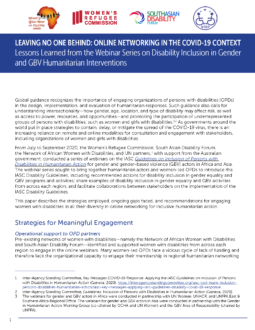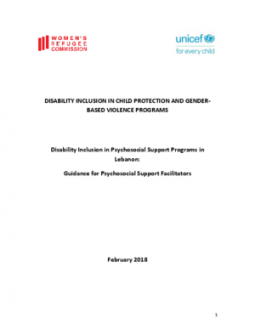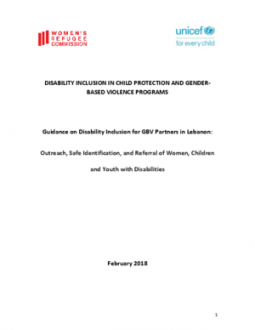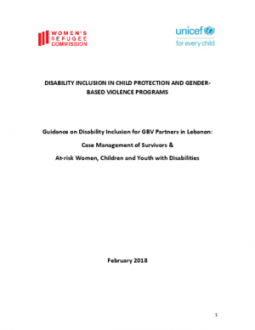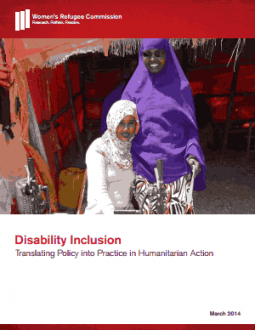
Disability Inclusion
PublishedTranslating Policy into Practice in Humanitarian Action
This report documents positive practices, ongoing challenges and recommendations for promoting disability inclusion across UNHCR’s and its partners’ work in multiple countries and multiple displacement contexts.
The report provides lessons and recommendations for other organizations and the wider humanitarian community on engaging persons with disabilities at all levels of humanitarian work. It draws on consultations with over 700 displaced persons—including persons with disabilities, their families, and humanitarian staff—in eight countries.
The report includes:
- Key protection concerns of persons with disabilities
- Implementation of UNHCR Guidance on Disability
- Institutionalizing disability inclusion across UNHCR operations
It also includes recommendations for advancing disability inclusion in humanitarian action, specifically tailored for:
- UNHCR: The next steps
- Humanitarian actors: Build on successes
- Disability actors: Expand skills to enhance protection
- Donor governments: Fund technical capacity
In creating Disability Inclusion: Translating Policy into Practice in Humanitarian Action, we gathered information directly from displaced persons with disabilities, as well as humanitarian field staff who work with them. The report highlights their concerns, as well as their ideas and suggestions for making humanitarian programs more accessible to persons with disabilities. It cuts across a variety of humanitarian settings, including urban and camp refugee contexts, internal displacement and complex large-scale crises, such as the Syrian refugee response. Consultations were conducted in eight countries: India (New Delhi), Uganda, Thailand, Bangladesh, Nepal, Ethiopia, Philippines (Mindanao) and Lebanon.



